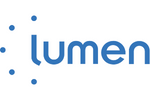Lumen Learning: Creating accessible experiences for students and instructors


The Client
Lumen Learning’s mission is to enable unprecedented learning for all students. This year, the company is supporting over 400,000 students and 5,000 faculty members in higher education with solutions that create effective learning experiences for learners and guide faculty members in the use of evidence-based teaching practices.
The Challenge
Lumen seeks to create success for all students, with an emphasis on ensuring that race, income and ability are not predictors of success – so prioritizing accessibility has always been part of the company’s aim.
When Jeanette Koskinas, Vice President of Product Management, joined the team in 2019, she saw an opportunity for expanding features and functionality in Lumen’s courseware – and wanted to “think about that through a larger accessibility lens.”
“From my perspective, our team’s responsibility is to understand the barriers our customers might face – whether they’re students, instructors or administrators – and determine how technology is suited to solve those problems,” she said. “What I really love about our approach is that we’re not only concerned with whether courseware is accessible for students. We want to make sure it’s accessible for instructors, too. The end user is important – but we’re also thinking about everyone else who is involved in teaching and learning while using our products. It’s a pretty unique, holistic approach.”
To get accessibility to the level Koskinas envisioned, she realized that she’d need to partner with experts. “We have staff who are focused on and knowledgeable about accessibility, but we knew we could use more detailed, expert guidance on a wider range of accessibility issues. We didn’t have that kind of expertise.”
The Solution
When Koskinas began researching and speaking with potential digital accessibility partners, Perkins Access stood out.
“I immediately felt like Perkins Access was the partner we needed,” she said. “I was initially drawn in by the mission, the connection to Perkins School for the Blind and the idea that this is a team dedicated to accessibility day in and day out. Some of the other organizations I reached out to didn’t have that same passion. It felt very much like a business transaction – asking me ‘What do you need? Do you want a VPAT? Do you need an audit?’ It felt like they wanted to come in, rubber stamp some stuff and we’d never talk again.”
Koskinas continued, “From the beginning with Perkins Access, we talked about my goals, what I wish could be different, how I’d like to get there and my timeline. We were already partners from that first call. I could tell this was a team that could appreciate that we were on a journey. And they were ready to guide us on the best choices and when to make those choices. There were opportunities to do more and be holistic in the way that we approach accessibility at Lumen. In the end, I truly felt that Perkins Access was the only partner who could get us there. It was a perfect match, really.”
Assessing existing products
To start, the teams worked to evaluate Lumen’s two main courseware offerings, Waymaker and Online Homework Manager (OHM), from both the student and instructor sides.
“Perkins Access was fabulous in helping us navigate specific challenges,” Koskinas said. “For example, Waymaker is only delivered via our users’ learning management system (LMS), so there are some accessibility elements that will, unfortunately, always be out of our control. The team worked closely with us to ensure we focused on what we could control in order to optimize the experience as much as possible.”
Following the evaluation, Perkins Access presented the findings. “The presentation was exceptionally well-attended,” Koskinas noted. “We’d opened it up to anyone at Lumen who was interested in accessibility.”
From there, Lumen and Perkins Access quickly worked together to identify other issues that would be solvable in the short-term and also provide the biggest return in improving accessibility.
Working together on new products
At the same time, the Lumen team was working on developing a new Accounting course. “Our goal was that this would be our flagship accessible course. But we recognized the complexities in making things like tables, ledgers and other complicated elements accessible,” Koskinas said. “The timing was very nice in terms of having Perkins Access there and being able to have very specific examples of something we needed to make accessible.”
Lumen has also recently acquired Faculty Guild and started offering Lumen Circles, a professional development platform designed for instructors. “Because this product was acquired and we didn’t build it ourselves, we are eager to have the experts from Perkins Access come in to look at it and think about it,” Koskinas said. “They understand our holistic strategy and could help us evaluate it in that context so we can adjust and remediate it as much as possible.”
Demonstrating Lumen’s commitment
With all of this effort toward improving accessibility, Lumen was ready to update its Voluntary Product Accessibility Template (VPAT) to proactively demonstrate its commitment to making learning accessible. “Our VPATs were aligned with WCAG 2.0 standards, so we partnered with Perkins Access to assess Waymaker and OHM again to see how we did against the changes to WCAG 2.1,” Koskinas said, “It’s given us an advantage to be able to talk about that in the marketplace – it shows that we’re ahead of the game.”
She added, “In previous companies, we had VPATs, but kept them confidential until someone asked for them. Maybe they weren’t where we wanted them to be. But with Lumen, it’s right on our website. Anyone can look at it. Being able to be open about that, and being comfortable saying, ‘We’re on a journey, and these are the things we’re doing to bring unprecedented learning to all students’ is really us trying to live by our company values.”
Creating a culture of accessibility throughout the organization
The benefits of working with Perkins Access extended beyond Lumen’s product team.
Brigeth Rivera, Lumen’s Vice President of Marketing, said, “From a marketing and sales perspective, accessibility and the work companies do is usually bound to product and development. But in this case, the partnership is having a wider-reaching positive impact.”
She continued, “I’ve been creating marketing and sales collateral for more than 15 years, but now I have a partner that I can go to for advice on making it accessible – and why it’s important to make it accessible. That’s helpful for internal education and getting our sales team up to speed on how much accessibility matters so they have a better understanding of our customers’ needs. This is the first time I’ve worked at an organization where I have that kind of accessibility-related support.”
What Rivera enjoys most about working with Perkins Access is the team’s open-mindedness. “Perkins Access is completely non-judgmental,” she said. “They are the experts – that’s why we’re partnering. I’ve been able to share and ask things without feeling like they’re thinking ‘Why don’t you know this?’ There’s never been judgment – everyone is super-supportive.”
Koskinas agrees. “I’m consistently amazed at how available and supportive the team has been,” she said. “I can go to them, even if we haven’t talked in a while, and get an answer or help as soon as I need it. They’re always there. It goes back to never feeling like we’re in a transactional relationship – we’re a team.”
The Outcome
Perkins Access and Lumen Learning continue to work together on accessibility projects. And, for Koskinas, the partnership itself is one of the most beneficial outcomes.
She said, “It would be easy to create products that are ‘good enough,’ but that doesn’t align with our values. We want to do better. Having the opportunity to work with a group of people with such a high level of expertise who let us ask questions or admit the things we don’t know gives us the power to get there.”
She continued, “Beyond the work we do with them, Perkins Access does a lot to educate the community in general – through their newsletters, their webinars, their presentations. They’re always giving us more ways to learn and get additional resources, which is very valuable.”
From a product perspective, working with Perkins Access has helped Lumen tag and track their progress on accessibility. “Often, when you make accessibility changes to technology, it’s not always obvious to a customer or one of our salespeople. This work allows us to be much more specific so we can communicate what we’ve done and why it’s important,” Koskinas said. “It makes people aware that we’re always thinking about it, and building it into releases as often as we can.”
And now, the team at Lumen is thinking about accessibility strategically. “Our approach now is proactive,” Koskinas noted. “Initially, we were being more reactive, trying to see how we could improve things that were already built – we needed feedback. Now, we have an opportunity to shift our thinking ahead so that, for any new functionality and features, we will have already thought through and incorporated accessibility from the beginning.”
When asked to sum up her partnership with Perkins Access, Koskinas said, “Somehow, they always make us feel like we’re their most important customer, even though we know they work with other organizations.”
She continued, “It’s a lovely blend of professional expertise and down-to-earth, real people who understand the actual execution of how to bring some of those loftier goals into actuality. They’re easy to work with, thoughtful and always willing to share – and they help us feel like part of a community. We’re so happy to have the opportunity to continue to work and learn with Perkins Access.”
